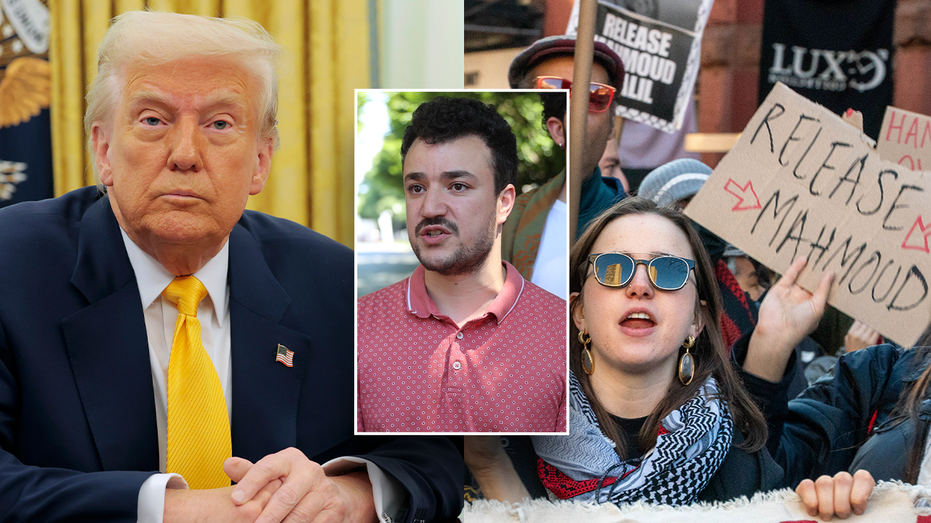Pro-Hamas Activist’s Deportation Sparks Debate Over Free Speech and National Security

Sarah Johnson
March 12, 2025
Brief
Legal experts debate Mahmoud Khalil’s arrest and potential deportation for pro-Hamas activism at Columbia, examining First Amendment rights, national security, and Trump’s immigration crackdown.
Legal experts are weighing in on the arrest and potential deportation of Mahmoud Khalil, a pro-Hamas activist who led anti-Israel protests at Columbia University. What some are calling a First Amendment issue, others firmly label a matter of national security. And yes, immigration laws appear to back the Trump administration's position on this one.
According to Ilya Shapiro, director of constitutional studies at the Manhattan Institute, the deportation of Khalil is no infringement on free speech. He asserts, "The government can't jail foreigners for saying things it doesn’t like, but it can—and should—deny visas to those who advocate for causes hostile to the United States." Khalil's alleged actions, which include harassment and vandalism during campus protests, seem to fit the bill for deportation under U.S. immigration law.
Khalil, who graduated from Columbia University in December 2024, was taken into ICE custody last week. DHS alleges he led activities supportive of Hamas, a designated terrorist organization. He reportedly spearheaded protests demanding Columbia divest from Israel and facilitated building takeovers on campus, actions that have sparked widespread criticism.
Trump, now in his second term, has made pro-Hamas activism on college campuses a focal point of his administration's immigration enforcement. An executive order signed in January 2025 explicitly targets foreign students involved in such protests. "We will find you, and we will deport you," Trump declared in a statement, leaving little room for interpretation.
Khalil is under investigation for alleged antisemitic and extremist social media posts, with DHS and other agencies citing him as a possible threat to U.S. national security. His case has ignited fierce debate, with Democrats and activists arguing his arrest infringes on constitutional rights. However, legal experts, including human rights attorney Brooke Goldstein, argue Khalil’s actions, not his speech, are what's under scrutiny. "This isn’t about expressing Jew-hatred; it’s about acting on it," Goldstein said.
Assemblyman Jake Blumencranz called for clarity amidst the uproar, saying, "This is a matter of national security, plain and simple. The First Amendment protects words, not actions taken in service of a terrorist cause." Blumencranz criticized Democrats for turning a blind eye to campus protests that reportedly left Jewish students feeling unsafe.
Legal analyst Julian Epstein noted that immigration law permits the revocation of visas for individuals supporting terrorist organizations. Epstein even suggested the DOJ consider criminal charges for violent protesters, calling deportation a "mild step." Khalil’s fate now rests with the courts, as a Manhattan judge has temporarily blocked his deportation pending further hearings.
Trump has warned that Khalil’s arrest is just the beginning, promising more action against individuals engaging in "pro-terrorist, anti-American activity." Whatever the outcome, this case has made one thing clear: the intersection of free speech, immigration law, and national security is as complex as it is contentious.
Topics
Editor's Comments
This case is a hotbed of conflicting narratives, but let’s cut through the noise. The law is pretty clear: green cards and visas come with conditions. If you use your time in the U.S. to stir up extremism and threaten national security, don’t expect to stick around. Khalil’s defenders might want to reconsider whether 'free speech' arguments apply to actions tied to a terrorist organization. The real victims here are the Jewish students who felt unsafe on their own campus.
Like this article? Share it with your friends!
If you find this article interesting, feel free to share it with your friends!
Thank you for your support! Sharing is the greatest encouragement for us.



